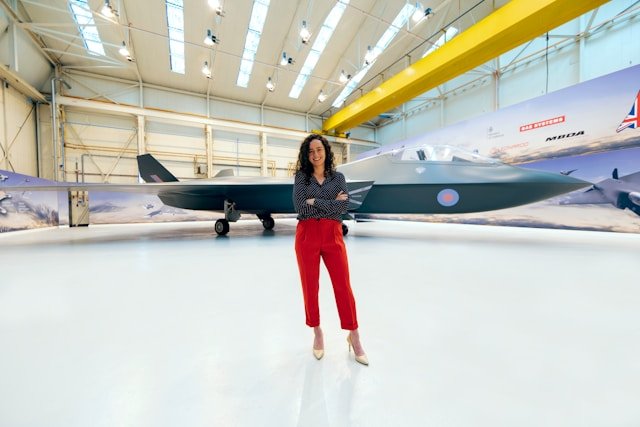The Sky is Not the Limit: Career Growth Opportunities in Aeronautics
- Understanding the Aeronautics Landscape
- Emerging Roles in Aeronautics
- Continuing Education and Certifications
- Career Progression Opportunities
- International Opportunities
- The Role of Mentorship
- Work-Life Balance in Aeronautics
- The Future of Aeronautics Careers
As the adage goes, "The sky is the limit." However, when it comes to aeronautics, even the sky is not the limit. The aeronautics industry abounds with career growth opportunities that can elevate your career beyond the stratosphere. Let's delve into these opportunities and help you chart your career trajectory.
Understanding the Aeronautics Landscape
The aeronautics industry, which covers the design and manufacturing of aircraft, is a dynamic and rapidly evolving sector. As the World Economic Forum1 reports, the industry is projected to experience substantial growth, driven by technological advancements and rising demand for air travel.
Emerging Roles in Aeronautics
New technologies and approaches are constantly emerging in aeronautics, leading to the creation of new roles. According to a report by McKinsey & Company2, jobs in areas such as drone technology, green aviation, and artificial intelligence are on the rise. Aeronautics likely offers a role for professionals of various backgrounds, be it software engineering, sustainability, or drone piloting.
Continuing Education and Certifications
The industry's constant evolution necessitates continuous learning. Many organisations offer opportunities for further education and certification. The World Bank3 highlights the importance of acquiring additional qualifications in helping professionals stand out in the competitive job market.
Career Progression Opportunities
Career progression in aeronautics doesn't necessarily mean moving into a management role. According to Gartner4, many professionals find fulfilling growth opportunities in specialised technical roles or in project-based positions. Companies typically facilitate career advancement by providing distinct pathways within technical and project management tracks, thereby broadening options for career growth.
International Opportunities
Given the global nature of the space and aeronautics industry, doors to international opportunities are widely open. The OECD5 reports that many aeronautics professionals have the chance to work in different countries, gaining valuable international experience and cross-cultural skills.
The Role of Mentorship
Mentorship can play a crucial role in career growth. Bain & Company6 suggests that having a mentor can provide guidance, improve skill sets, and open up new opportunities. Many organisations have mentorship programs to support their employees' career development.
Work-Life Balance in Aeronautics
The aeronautics industry is known for its demanding projects, but that doesn't mean work-life balance is out of reach. According to EY7, companies that support work-life balance through their policies tend to have employees who are more engaged and productive..
The Future of Aeronautics Careers
The future of careers in aeronautics looks promising. With the continued advancement of technology and increasing demand for air travel, career opportunities in this field are likely to expand. Pearson8 suggests that the aeronautics industry will need a diverse range of skills in the future, opening up opportunities for professionals from various backgrounds.
In conclusion, the sky is indeed not the limit when it comes to career growth opportunities in aeronautics. With a wide range of roles, opportunities for continuous learning, various career progression pathways, international experiences, mentorship programs, and a focus on work-life balance, a career in aeronautics offers boundless potential for growth.
External Links:
1. World Economic Forum: "17 ways technology could change the world by 2027"
2. McKinsey & Company: "McKinsey Technology Trends Outlook 2022"
3. World Bank: "Education"
4. Gartner: "Gartner HR Research Finds Just 25% of Employees Are Confident About Their Career at Their Current Organization"
5. OECD: "Promoting skills use and learning organisations"
6. Bain & Company: "Supporting Your Growth"
7. EY: "Work Reimagined Survey"
8. Pearson: "The Future Skills of Employment in 2030"









